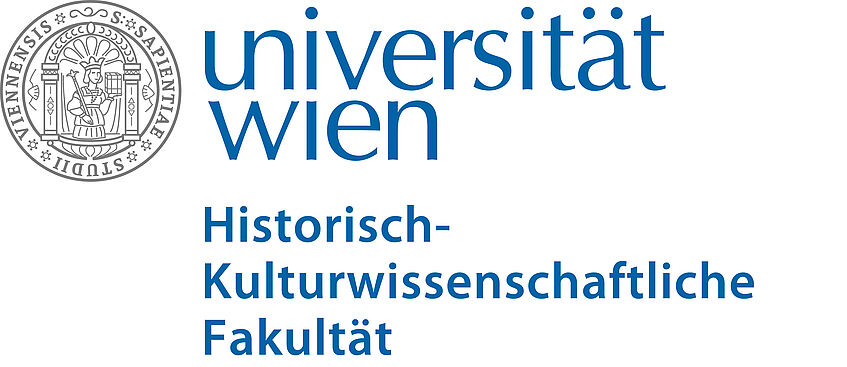Alma Rosé Prize for research into the history of those persecuted under National Socialism and the history of their material losses and seizures
Objective
The Alma Rosé Prize is endowed with 1,000 euros and is awarded for outstanding scientific achievements in the first phase of studies (such as diploma and master’s theses). Up to three prizes are awarded per year. Dissertations are not currently funded. Innovative formats such as podcast, video or visualization forms of the digital humanities (e.g. storymaps) can also be submitted, provided they have been admitted as a thesis at a German-speaking university.Honored are academic qualification writings at German-speaking universities that deal with the history of National Socialism, cultural property confiscated in the Nazi era as well as the aftermath (including post-war justice), and thereby focus on the history of persecution, especially with regard to the confiscation of assets and the (private) economic plundering. An intensive examination of the victims’ perspective in various contexts (“Aryanization,” “utilization,” restitution and compensation proceedings, symbolic “reparation”), the history of deprivation and its actors, and the history of loss of objects or items of all kinds is requested.In particular, the aim of the prize is to strengthen the still young sub-discipline of provenance research, research on property seizure, material culture in this subject area, as well as compensation and restitution procedures at German-speaking universities, and to provide an incentive for young scholars to critically examine these topics and to conduct basic research in this area. The jury is interdisciplinary in order to bring in the perspective of different disciplines.
About the namesake
Alma Rosé was born into one of Austria’s most famous musical dynasties, the Mahler-Rosé family, as Gustav Mahler’s niece. She was an outstanding solo violinist and made a name for herself in the 1930s with the group “Wiener Walzermädeln”. She was exiled to London by the Nazis after the Anschluss for racial reasons, along with her father, the concertmaster of the Vienna Philharmonic Arnold Rosé, and her instruments, a Guadagnini and a Stradivarius. Alma was on a concert engagement in the Netherlands when she was surprised by the occupation by the Wehrmacht and thus belatedly fell into the clutches of the Nazi persecution machinery. The plan to leave for her brother in Canada failed at the last minute. During her attempt to flee to Switzerland, she was apprehended and arrested by the Gestapo.
Deported from the transit camp Drancy to Auschwitz in 1943, she was recognized there as the famous Alma Rosé, which prompted the concentration camp warden Maria Mandl to entrust her with setting up a women’s orchestra in Auschwitz out of a desire for prestige. The orchestra was composed of female musicians between the ages of 16 and 40, who were thus given a chance of survival. The orchestra played marches at the morning and evening roll call, but otherwise also played concerts of classical music for everyone (“Sunday concert”), or entertainment songs that the SS supervisors requested for private events. In April 1944, Alma Rosé became infected and died shortly thereafter in the SS hospital at the Auschwitz concentration camp, where she could not be saved despite medical efforts. There are reports that even the SS personnel mourned her.
Most of the other orchestra members survived the death marches from Auschwitz and the liberation in Bergen-Belsen, most famously the former cellist, Anita Lasker-Wallfisch, who regularly draws attention to Alma Rosé, her Viennese heritage, her musical achievements as well as her helpfulness in Auschwitz in lectures and television interviews. Classical music was one of the factors that gave the concentration camp inmates courage to face life and thus strengthened their will to survive.
Her father Arnold Rosé’s Stradivarius has been in the possession of the Republic of Austria since 2006 and is managed by the National Bank’s collection of historical string instruments, which lends it to aspiring young musicians as part of a scholarship.
In the course of the still young research field of provenance research, recently, after spectacular studies on art theft, looted instruments have also become the focus of scientific research on Nazi injustice policies (object history), which is why the case of Alma Rosé is symbolically suitable as the namesake of a thematically dedicated examination prize outlined here.The Alma Rosé Prize contributes to the promotion and public recognition of young scholars and serves to raise awareness of the (also economic) crimes of National Socialism, their profiteers and the memory of their victims, and thus to educate about anti-Semitism and racism.
Organised by the Dean's Office of the Faculty of History and Cultural Studies of the University of Vienna, the prize is awarded once a year in a public ceremony under the aegis of the Österreichische Gesellschaft für Zeitgeschichte (Austrian Society for Contemporary History) with additional financial support from the Austrian National Bank and the Arbeitskreis Provenienzforschung e.V. (Provenance Research Working Group).
It is organized by the Austrian Society for Contemporary History (ÖGZ), which already successfully administers the Irma Rosenberg Dissertation Prize. Representatives of the fields of contemporary history, art history and related sciences have been asked to participate as members of the jury.
Deadline: 31.7.2025
Applications (examination paper, expert opinion, cover letter) should be sent to the office of Prof. Kerstin von Lingen, by email to almarosepreis.zeitgeschichte@univie.ac.at.
Dissemination
In addition to the award of the scientific work, it is central to present the results to the public. Thus, the award winners are offered the opportunity to draw attention to the researched topics on the one hand in the context of a short project presentation during the award ceremony, and on the other hand in an online publication (blog post, podcast, visualization, essay …) and to make the topics of persecution and expulsion, transfer and translocation, robbery and restitution known to a broader public. This strengthens a social consciousness that is sensitive to contemporary manifestations of anti-Semitism and racism, and that serves to prevent violence and serve as a reminder by educating people about historical events.



